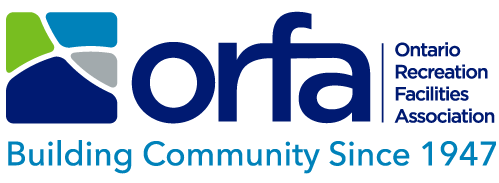TORONTO, April 1, 2021
The Ontario Recreation Facilities Association (ORFA) continues to raise awareness of the risks and hazards associated with indoor air quality in recreation environments. Poor indoor air quality is considered both a health risk to facility employees and those who use these buildings. The corona virus is merely an additional potential sick building syndrome threat to worker and user safety that must be considered as part of all building air management and system operational plans. Facility management should prepare for the potential of increased litigation associated with toxic or dangerous air through contact tracing protocols. Anticipate increased expectations from users who may demand confirmation of a facilities ability to effectively manage indoor air quality. Increased focus on operational and maintenance recordkeeping is strongly recommended.
Every recreation facility has a unique design, construction and operational challenge that must be individually accessed. Nevertheless, the following commonalities exist in all operations and should form part of a building air management program.
The ORFA recommends the following best practices:
- All new buildings must meet current Codes, Acts and Regulations at the time of construction, with no legal requirement, unless specifically directed, to maintain air management to future standards; and that under the guidance of a professional engineer, facility management should conduct air flow testing, no less than every 10-years in the first 30-years of a facilities lifecycle and every 5-years thereafter as a facility ages to determine the current level of effectiveness of the equipment and design to turn-over indoor air.
- Operational staff awareness of training on the risks and hazards of indoor toxic air form part of all recreation facility workplace specific training platforms.
- That poor indoor air quality can and does potentially lead to other related issues like legionnaires disease and rodents/bats and bird infestations if the system is not working at peak efficiency.
- That all air management equipment be maintained to the original manufacturer specifications.
- That all recreation facilities have and maintain written policy, procedure, and training information.
- That all recreation facilities have and maintain logbooks that record facility air testing inspections and maintenance activities.
- That items such as banners only be installed when original air flow design is not compromised.
- That all air management equipment be included in the facilities asset management plan. (Note - RFAM is one such tool with some modules made available as a benefit of membership in ORFA)
- That facility management commit to continued education and professional development regarding indoor air quality issues, changes in technology, equipment and best practices.
- That users and workers be immediately advised of any indoor air quality or testing issues so that they may evaluate the level of risk of entry to the facility.
- Although there are several governing agencies tasked with monitoring indoor air quality, the fact is that they are truly evaluating a facilities administrative ability to manage their assets. Any required action by a governing authority should be viewed as a lack of commitment by building supervisory staff to maintain a safe work and play environment.
- Indoor air quality in recreation facilities is a complicated and diverse subject matter. The ORFA recommends that the topic be added to all Joint Health and Safety Committee workplace inspection objectives.
